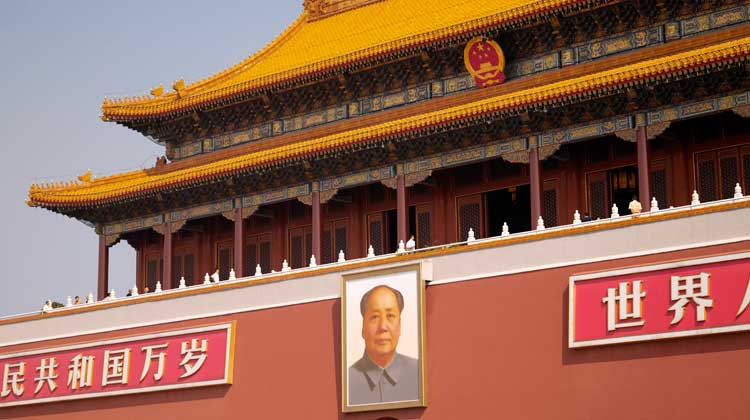
While China’s global diplomatic, military, and economic power projections are well documented, a new Hoover Institution report wades into the country’s “cultural and informational influence,” examining its myriad efforts to further project global power and influence.
“Except for Russia, no other country’s efforts to influence American politics and society is as extensive and well-funded as China’s,” notes Chinese Influence & American Interests: Promoting Constructive Vigilance released in November. “By undertaking activities that have become more organically embedded in the pluralistic fabric of American life, it has gained a far wider and potentially longer-term impact.”
The report begins from the premise that General Secretary Xi Jinping has asserted power beyond that of his predecessors, going as far as claiming “a more efficient developmental model than liberal democracy.”
With contributions from dozens of China experts, the report examines China’s influence on everything from Congress and local governments to universities, media, public policy institutions, corporate entities, and the technology sector.
Regarding politics, the report notes China’s extensive efforts to influence not only at the national level, but through local impact as well. “Like many other countries, Chinese entities employ prominent lobbying and public relations firms and cooperate with influential civil society groups,” the report states. “In some rare instances, China has used private citizens and/or companies to exploit loopholes in U.S. regulations that prohibit direct foreign contributions to elections.”
Another large and expanding area of Chinese influence is that at U.S. colleges and universities—particularly through Confucius Institutes (Cis), which the report notes is “[o]ne of the most controversial aspects of the whole US-China educational exchange.”
Currently 110 such institutes exist at colleges, but the report also notes an additional 501 “Confucius Classrooms” in high schools.
“Sponsored by the Hanban, an organization directly under the Ministry of Education in Beijing, but also with ties to the External Propaganda Leading Group of the CCP Central Committee, the primary mission of CIs is to teach Chinese language and culture abroad,” the report states. “However, faculty and other watchdogs have warned that they may present risks to intellectual freedom by using American universities as vehicles through which to advance Chinese Communist Party propaganda.”
Most of the criticism of CIs, the report adds, is that they promote communist Chinese viewpoints while suppressing topics controversial to the Chinese.
In media, the report notes that independent Chinese media outlets in the United States have all but disappeared.
“Both the expansion of Chinese state-owned English-language media in the United States and Beijing’s increasing control of Chinese-language media outlets in the United States are very problematic for an open dialogue,” the report states. “PRC’s control of Chinese-language media outlets in America and its increasingly strong position among English-language outlets provides China with the potential of mobilizing Chinese Americans and Americans alike to espouse policies counter to U.S. interest.”
Within the Chinese-American community itself, the report emphasizes the country’s heavy efforts to suppress anything critical of China as well as those who might support Taiwan.
“Beijing also views Chinese Americans as members of a worldwide Chinese diaspora that presumes them to retain not only an interest in the welfare of China but also a loosely defined cultural, and even political allegiance to the so-called Motherland,” the report states. “Such activities not only interfere with freedom of speech within the United States, but they also risk generating suspicion of Chinese Americans, even though those who accept Beijing’s directives are a very small minority.”
The working group that produced the report wanted to “strike a balance between passivity and overreactions, confidence in our foundations and alarm about their possible subversion,” the report states. “We believe that a new emphasis on such ‘constructive vigilance’ is the best way to begin to protect our democratic traditions, institutions, and nation, and to create a fairer and more reciprocal relationship that will be the best guarantor of healthier ties between the United States and China.”
Read the entire report here.
© 2018 Homeland411
Please subscribe to the Homeland411 free weekly electronic newsletter.